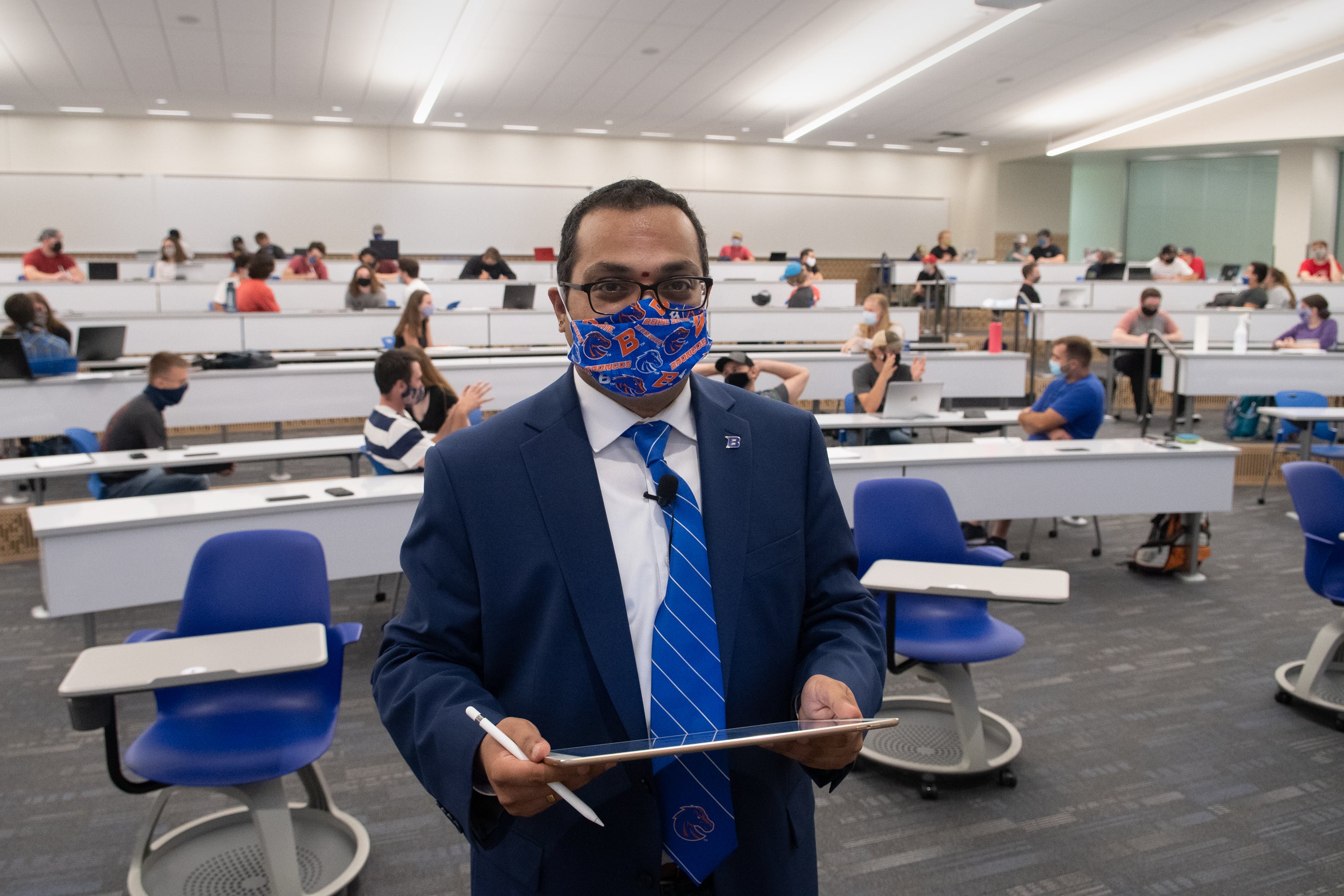
Krishna Pakala, an assistant professor of mechanical and biomedical engineering at Boise State, and Diana Bairaktarova, an associate professor of engineering education at the Virginia Polytechnic Institute and State University, jointly received two grants totaling $200,000 from the National Science Foundation.
The grants will support research utilizing mobile technologies and a technology-enhanced curriculum to improve student engagement and learning in STEM undergraduate courses. Pakala’s technology-enhanced curriculum approach is called “Mobile Assisted Gains through Innovative Curriculum (MAGIC) for STEM Undergraduates”.
“The goal of the research is to measure how mobile technology, when purposefully integrated into engineering teaching, impacts student engagement, enhancement, and extension of learning,” Pakala said. “Using a thermal-fluid science course as a model course, the primary contribution of this research is to directly improve and transform engineering students’ learning by enhancing their learning in one of the most difficult and abstract content in engineering curricula.”
In this research, Pakala will work with Bairaktarova to conduct a mixed-methods study implementing mobile devices with a stylus and a technology-enhanced curriculum. To examine the impact of mobile devices on student learning, the following research questions will be addressed in the areas of engagement, learning outcomes, and extension of learning goals to real-life problems:
- Does mobile device use facilitate engagement in thermal-fluid science course content?
- Does mobile device use increase learning of identified difficult concepts in thermal-fluid science courses as indicated by increased achievement scores?
- What are student perceptions of using mobile devices for solving real-life problems?
The team will also collect data to ascertain how MAGIC impacts traditionally underrepresented students. Ultimately, the findings from this research will provide educators a blueprint for broader implementation of mobile devices in teaching and learning across STEM disciplines and hopefully improve student retention.
This research, Pakala said, “comes not a moment too soon” as educators and students across the world work to continue to shape remote and technology-enhanced learning in the face of the global pandemic.
“The current COVID-19 global pandemic demonstrates the need for both instructors and learners to be flexible and creative in their teaching and learning methods and modalities,” Pakala said. “With the uncertainties imposed by the pandemic, fostering faculty use of evidence-based methods for teaching and learning continues to remain relevant. Mobile devices such as smartphones, tablets, and tablet computers enable learning anytime and from any location, blurring the boundaries between formal and informal learning.”
For more information on Pakala’s and Bairaktarova’s NSF awards, please visit: (Pakala) https://www.nsf.gov/awardsearch/showAward?AWD_ID=2106345 and (Bairaktarova) https://www.nsf.gov/awardsearch/showAward?AWD_ID=2106180